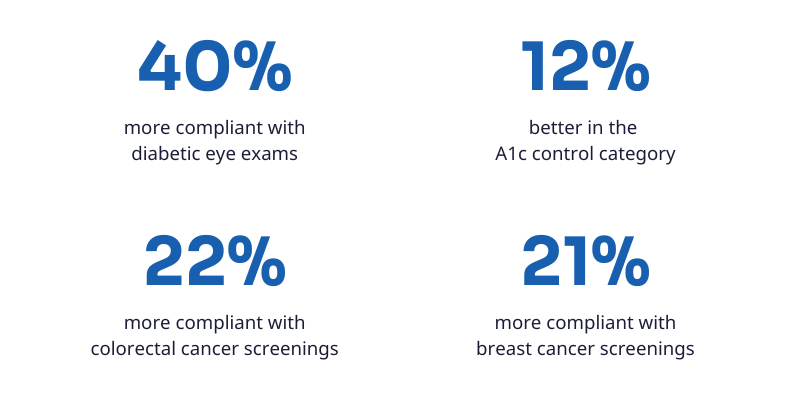The webinar, titled “Delivering Value-based Success with Tech-Enabled Services for Chronic Care Management to Close Critical Gaps in Care,” was hosted by Healthcare Innovation and sponsored by TimeDoc Health. The speakers, Dr. Alison Grover, a fellowship-trained geriatrician at StayWell Health Center, and Sarah Cameron, LCSW and clinical strategy leader, shared valuable insights, including:
- Best practices for effective CCM.
- Strategies for data integration and patient-centric partnerships.
- Building trust, securing buy-in, and nurturing a culture of collaboration.
- Shaping the future of value-based care.
TimeDoc Health and StayWell’s Collaborative Approach to Enhancing Value-Based Care and Patient Experience
StayWell Health Center, a long-standing partner of TimeDoc, embarked on a journey to embrace value-based care initiatives. To quantify the outcomes and value of their Chronic Care Management (CCM) program, they collaborated with TimeDoc to assess 15 clinical quality measures. The results showed that patients enrolled in the program performed better in closing gaps and achieving control over hypertension, A1C levels, and more.
Dr. Grover highlighted the initial stages of their partnership with TimeDoc Health. This collaborative effort allowed them to align their documentation practices and customize the Chronic Care Management program to reflect StayWell’s values and interests.
Cameron emphasized the significance of a patient-centric approach and shared how their team engaged with patients and providers alike. By being present in electronic health records (EHR) and communicating directly with providers, TimeDoc Health reinforced provider-directed instructions and mitigated barriers to care. This comprehensive communication loop ensured that patients received consistent support and guidance from their care team, leading to increased patient satisfaction and improved outcomes.
Dr. Grover discussed the challenge of gaining provider buy-in for external care management teams. However, the partnership with TimeDoc Health successfully garnered trust and support from clinicians at StayWell. By reducing the clinical workload and streamlining processes, TimeDoc Health demonstrated their commitment to alleviating burdens and enhancing the quality of care provided. Trust was fostered through integrated access to the EHR, enabling seamless collaboration between providers and TimeDoc Health’s care coordinators.
Efficiency and positive patient experiences were key goals for StayWell and TimeDoc Health. Dr. Grover highlighted the steps taken to ensure a positive experience for both patients and providers. The ability to replicate relevant information from the TimeDoc Health software into the EHR simplified documentation for providers, reducing administrative burden and improving workflow. This approach enabled providers to focus more on comprehensive patient care.
To sustain provider buy-in over time, StayWell emphasized the importance of demonstrating improved outcomes and identifying practice champions. By showcasing the positive impact of their efforts on patient outcomes, StayWell successfully instilled a sense of purpose and importance among the care team, thus driving continued engagement and support for tech-enabled CCM.
Chronic Care Management and Value-Based Care
The success story of StayWell and TimeDoc Health showcases the power of collaboration and leveraging tech-enabled services for CCM. By embracing a patient-centric approach, streamlining documentation processes, and fostering seamless communication, this partnership has not only improved patient outcomes but also enhanced efficiency and satisfaction among healthcare providers. As the healthcare landscape continues to evolve, such collaborations and innovations will play a crucial role in delivering value-based care.


